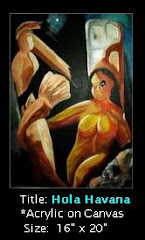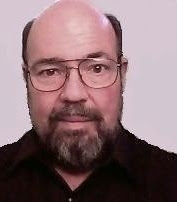During the 1950s there was probably no Television (or radio, for that matter) personality more immediately recognizable to the American audience than Arthur Morton Leo Godfrey (August 31, 1903 – March 16, 1983).
His red hair (ok, it was black & white TV, but they mentioned it a lot), and ukulele were trademarks, as was his folksy delivery and common man demeanor. He was a TV host, a talent scout, a radio personality, and a pitchman for numerous advertisers.
If he liked you, and you had talent, he could make you a star. But of course, if he didn’t like you . . . .
But before he became arguably the king of 1950’s television (he had 2 weekly shows, and a daily 90-minute morning show at one point), Godfrey got his start in radio in the 1930s.
While still working for a regional radio station in 1933, Godfrey was involved in an auto accident and spent months in the hospital. His only entertainment was the beside radio, and he listened for hours. It was then he realized that the stiff, formal speech patterns of most on-air personalities didn’t `connect’ with the listener.
He vowed to develop a folksy style – like he was talking to just one person – if he ever returned to the airwaves. Which he did on a local radio show in the Washington D.C. market.
By 1942 he had managed to become the announcer for Fred Allen's Texaco Star Theater show on CBS radio, but left after a dispute with the star after just 6 weeks.
Godfrey reached the nation’s attention while describing the funeral procession of President Roosevelt in 1945. His folksy, common man narrative was picked up by the networks, and broadcast around the country.
Choking back tears, Godfrey intoned "God bless him, President Truman” when the newly inaugurated president passed by.
CBS was so impressed with him, they gave him a nationally syndicated morning show Arthur Godfrey Time on the radio. Two years later (1947), Godfrey struck gold again with a novelty tune “The Too Fat Polka”.
After that, CBS gave him a primetime variety show, Arthur Godfrey's Talent Scouts. A variation of the popular Amateur Hour, Talent Scouts saw a number of famous entertainers break into show business.
Wally Cox and the Chordettes both appeared on the same show, and Godfrey signed the Chordettes to be part of his radio and (eventually) television family.
While Godfrey’s show highlighted early appearances by the likes of Roy Clark, Lenny Bruce, Don Adams, Tony Bennett, Patsy Cline, and Pat Boone he also rejected a very young Elvis Presley and Sonny Till & The Orioles.
CBS was in danger of becoming the All Godfrey All The Time Network by the mid 1950s, with the ubiquitous Godfrey showing up five mornings and a couple of nights each week on the schedule.
His abilities as a pitchman for products (Lipton Tea and Soup, Frigidaire, and Chesterfield Cigarettes among others) was legendary. He would wander from the script, poke gentle fun at the sponsors (but never the product), much to the delight of audiences.
Sponsors, if they were unnerved by his antics, quickly learned that their sales went up when Godfrey pitched them.
Godfrey was an amateur radio operator (Ham), and an accomplished private pilot, and would often talk about his hobbies and interests on the air.
But there was a dark side to Godfrey as well, one that began to bubble to the surface publicly during the 1950s. Some people place the blame on the pain he endured after his auto accident two decades earlier, and the subsequent operations he underwent.
Godfrey was eager to groom new talent, but was a tough taskmaster. He insisted that his `little Godfreys’, members of his cast, take ongoing dancing and singing lessons, and maintained tight control over their careers.
One member of his cast was Julius LaRosa, who was a popular vocalist on the show. He chafed at having to take the dance lessons, and missed one due to a family emergency. Godfrey punished him by barring him from the show for a day.
LaRosa hired an agent to renegotiate his contract, and was blindsided when – during a broadcast – Godfrey announced that LaRosa was leaving the show.
After LaRosa told the press he had no idea he was going to be fired, Godfrey called his own press conference, and said that LaRosa had lost his `humility’.
The public slowly began to suspect that it was Godfrey, not LaRosa, who lacked humility.
The firings continued, with Godfrey’s bandleader, and the Chordettes next to go (replaced by the McGuire Sisters), and the controversies grew. Comedians openly mocked Godfrey, and his image suffered (I’ve an example below).
Two movies were made about `Godfrey-like’ media personalities, and neither were flattering. The Great Man (1956) starring Jose Ferrer, and Elia Kazan's classic A Face in the Crowd (1957) starring a very young Andy Griffith.
Although his star was tarnished by the controversies, Godfrey continued to appear regularly on TV until 1959, when his doctors discovered he had lung cancer. Remarkably, Godfrey beat the odds, and lived another 24 years after surgical removal of one of his lungs.
Flawed or not, Godfrey was genuinely one of the pioneers of early TV and radio, and we are lucky enough to have some of his later radio shows (recalling the 1950’s), and some kinescopes of his shows of the 1950s.
All are available on The Internet Archive.
First, some reminiscing by Godfrey in 1972 about his broadcast career and broadcasting in general during the 1950’s.
Recalling 1956 6.80 MB
Recalling 1955 6.90 MB
Recalling 1954 6.86 MB
Recalling 1953 6.91 MB
Recalling 1952 7.11 MB
Recalling 1951 6.90 MB
Recalling 1950 6.87 MB
Recalling 1949 6.89 MB
Arthur Godfrey's Talent Scouts (1956)
Episode of "Arthur Godfrey's Talent Scouts" from July 30, 1956.
"Arthur Godfrey and his friends" - 28/January/1953
Partial program of "Arthur Godfrey and his friends": Marion Marlowe, Julius LaRosa, The McGuire Sisters and Frank Parker from January 28th, 1953.
These next two videos are part of a documentary/commercial created for Eastern Airlines by Godfrey, extolling the virtues of modern air travel. Interesting from a historical perspective, and for all aviation buffs as well.
Flying with Arthur Godfrey (Part I) - Fairbanks (Jerry) Productions
TV host Arthur Godfrey takes controls of a passenger plane to demonstrate airline operations.Flying with Arthur Godfrey (Part II) - Fairbanks (Jerry) Productions
TV host Arthur Godfrey takes controls of a passenger plane to demonstrate airline operations.
And a parody (and probably not intended kindly) by Jerry Lester, host of The Cavalcade of Stars, of Arthur Godfrey.
It is mercifully short.
"Cavalcade of Stars": Arthur Clodfrey
Clip from the 50's TV series "Cavalcade of Stars" featuring a parody of Arthur Godfrey called "Arthur Clodfrey Time". Features parodies of early commercials and plugs, and the unpredictable nature of live TV. Certainly historically important, But you really have to know about early commercials to find this funny, Otherwise you will be confused
Godfrey returned to his morning radio show in the 1960s, and would continue on with it for another decade, but his TV appearances dwindled.
He had some guest shots in a handful of movies, co-hosted Candid Camera briefly with Allan Funt (another professional relationship that reportedly ended badly), and made commercials – but his heyday was through.
Godfrey died in 1983 of Emphysema, at the age of 80.











No comments:
Post a Comment